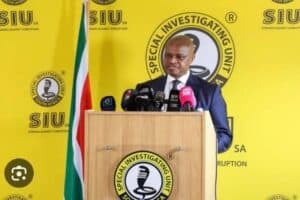Living alone without adult supervision in Hilbrow with his younger brother while his mother worked in Durban, Ayibongani Dube went through tough times.

Some matrics had to face the final examinations with major stumbling blocks and setbacks weighing heavily on them.
They did not, however, miss a beat and and made to show the Independent Examinations Board (IEB) examinations who’s boss.
These are some achievers who showed some serious juggling skills when it came to life and school.

Antonio Aristides. Picture supplied
After being diagnosed with cancer at the beginning of his preliminary exams in July last year, Saheti pupil Antonio Aristides walked away from his matric year today having achieved eight distinctions.
A year that started full of expectations could have gone down the drain for Aristides after his health sent him to the doctor’s office where he was eventually diagnosed with Hodgkin’s Lymphoma – a cancer of the lymphatic system.
“I started feeling a little sick with chest pains and I started losing a bit of weight. I had to go to the doctor and after two antibiotic courses did not work he suggested I get a biopsy. When I was diagnosed, it was hard for me to process,” he said.
Despite his struggles, Aristides set a goal for himself: to complete his matric.
“The support from my school teachers, my friends and everyone was crazy. My exams were pushed back so I could still go to my doctors’ appointments and my friends would send SMSes every day.”
Aristides achieved eight distinctions in Afrikaans, Business Studies, English, Information Technology, Life Orientation, Mathematics, Modern Greek and Physical Sciences.
“My goal was to write my matric exams this year and I am just grateful I was able to achieve it,” said Aristides.

Karishma Naicker-Seni. Picture: Supplied
Since the day she set foot in a gymnasium at age six, Karishma Naicker, also from Saheti, always knew she wanted to be a gymnast.
She has been able to pursue this dream while in school and is now walking away from her matric year with distinctions in Afrikaans, English, Geography, Life Orientation, Life Sciences and Mathematics.
She has also ranked within the top 1% nationally and achieved an overall average of 86%.
Gloating over her promising results, Naicker admitted she had a tough year juggling gymnastics that required 16 hours of practice a week with maintaining good grades in school and having a social life.
“There was a lot of clashing with school and gymnastics but I found a way to work around it. I learnt about the skill of time management,” she said.
Coming a long way since her first major competition abroad at age 12, Naicker said she is expecting to receive her first Protea full colours in March as she embarks on yet another career-defining competition in Egypt, where she will perform at the African Championships.
She is also planning on studying this year and is still deciding on what to major in between medicine or physiotherapy.

Ayibongwe Dube. Picture supplied
Coming from humble beginnings, Ayibongani Dube said being a part of the St John’s College Academy “made all the difference” to his matric year in 2019.
The academy, now in its 11th year, serves scores of boys between grades 10 to 12 attending schools in impoverished areas including Berea, Hillbrow and Yeoville.
Living alone without adult supervision in Hilbrow with his younger brother while his mother worked as a babysitter in Durban, Dube said he went through some tough times.
“I got up at 3.30 every morning to study, and then to prepare breakfast for my brother and I and get him off to school. It was exhausting at first, but then I got used to it and I looked forward to those early morning hours alone with my books,” he said.
Dube said being selected for the programme was an honour.
“The teachers there made learning fun. The most important lesson I take from my years at school is this: reading opens new worlds, brings new ideas and has the power to change people and the world,” he said.

Jack Lees. Picture supplied
While writing his matric exams, a young cricketer from St John’s College was told he would be selected to be a part of the national Under-19 cricket team representing the country at the Under-19 Cricket World Cup.
“I was flabbergasted when I heard I had made the team. For days, it felt quite surreal.
“It was a tough year, concentrating on academics and cricket,” said Jack Lees, who started playing cricket at the age of two.
He explained he had growing up playing the sport with the full support of his family, including his father who had played professional cricket. He saw the sport as a way to express himself and that it played a massive part of who he was.
“I started regarding cricket as a break from the books,” he said. “This worked for me.
“Cricket is definitely a big part of my future. I’ve always wanted to be a cricketer, and I think being selected for the under-19 squad is a step in the right direction.”
For more news your way, download The Citizen’s app for iOS and Android.






